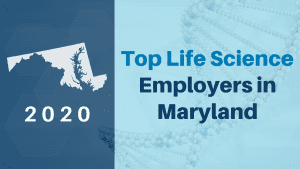
5 Questions With Shailah Yazdani, Director of Operations at the Center for Breakthrough Medicines
“5 Questions With…” is a recurring BioBuzz series where we reach out to interesting people to share a little about themselves, their work, and maybe something completely unrelated. This week we welcome Shailah Yazdani, Director of Operations at the Center for Breakthrough Medicines, a cell and gene therapy contract development and manufacturing organization (CDMO) based in the heart of Philadelphia’s Cellicon Valley.
Passionate about driving the next generation of provider and patient care offerings, Shailah Yazdani has dedicated more than 15 years to creating and modernizing organizational systems and delivering best-in-class healthcare solutions. Focusing on the company vision and mission, Shailah works with industry leaders to solve multi-layered challenges, designing innovative systems to create value and ignite enterprise growth.
As Director of Operations for the Center for Breakthrough Medicines (CBM) since 2021, Shailah successfully launched their analytical development labs and piloted the rollout of GMP testing. By readily identifying the root cause of complex interdepartmental issues, Shailah generates solutions that reduce or eliminate operational inefficiencies, delivering comprehensive and dynamic operational systems. In her previous role as Director of Lab Operations for Testing Centers of America (TCA), Shailah designed and launched both brick and mortar and mobile COVID-19 testing labs from ground up, serving a critical need during the height of the COVID-19 pandemic. Results-driven by nature, Shailah embraces her role as integrator, outlining and disseminating objectives to empower multidisciplined groups and individuals to work together towards common goals.
Equipped with an MBA from the Fox School of Business at Temple University and a Lean Six Sigma Black Belt certification in Healthcare, Shailah champions continuous change and operational excellence by reducing waste and delivering systems that are scalable, on-time, and on-budget. She was also recently named an Honoree for Philadelphia Business Journal’s ‘Diversity Leaders in Business Award‘ (2021).
1) Please introduce yourself to our audience by looking back at your education, training, and career.
I’ve been fortunate to be able to successfully switch industries across my career path. Surprisingly, there were parallels I was able to draw across all, from the travel industry to clinical diagnostics to the biotech industry. Currently, I oversee operations for Testing and Analytical Services at Center for Breakthrough Medicines (CBM), a CDMO focused on advanced therapies dedicated to delivering life-changing treatments to the patients that need them. The journey that brought me to this role shaped how I approach problem-solving. It has taught me how to think, more than what to think.
My experience has positioned me well to modernize operational systems and processes that facilitate service excellence, growth, and profitability, and it started with a summer job. I initially had an interest to enter nursing and took on a part-time position at a travel agency to support paying for college tuition. While volunteering at a neighborhood hospital and combined with my experience in the travel industry, I found myself more interested in business operations and answering questions around how one delivers a service that provides positive outcomes for the consumer and the provider.
The summer job turned into a family-owned travel agency, and I eventually switched from nursing to business administration. In the early 2000s, the travel industry underwent a disruption where it moved from paper-based ticketing to exclusively e-ticketing and several years later went from primarily B2B to mostly B2C. In between those years, we still thrived by shifting from transactional sales to a broader market to relationship-based sales to a niche market. Being a business owner exposed me to the challenges, risks, opportunities, and decisions that support a company thriving under various market pressures.
In 2009, I disrupted my own life by moving to Philadelphia and taking an entry-level opportunity in a clinical diagnostic lab. Over the years, while pursuing my MBA from Fox School of Business at Temple University, I rose into various leadership positions at the lab, oversaw its exponential revenue growth and its footprint expansion from community-based to nationwide by 2014 and global by 2016.
As I switched career paths, I found multiple parallels across the industries. First, invest in your people, communicate with them openly, and be transparent on the “whys” of what we do. Other key parallels are efficiency of electronic-based systems, a relationship-based sales approach, maintaining lean operations to reduce cost and optimize margins, risk-minimizing supply chain strategies, and leveraging shipping and logistics to feed robust chain of custody and sample management operations, the entry point of all testing services. I’ve found that the best practices of a mature industry can have broad applicability in an emerging industry, if one looks beyond transactional activities, identifies the why, and understands the how.
2) You have an amazing 15-year tenure of building businesses – could you elaborate more on your thought process and plans for managing and growing CBM?
I’m inspired by a startup that has a meaningful and impactful purpose. CBM’s mission and vision are to save lives with improved access and affordability of advanced therapies; this is what drives my thought process. Having been a consumer and service deliverer of healthcare, I’ve experienced and witnessed the frustration and heartbreak when one has unsuccessfully exhausted all avenues of the traditional healthcare service delivery model. Advanced therapies offer hope and a path to cures for previously uncurable diseases. The delivery mechanisms of these therapies have unlimited potential and I’m excited to be a part of the continuum that is making these therapies a safe and affordable reality.
My focus with CBM’s Testing and Analytical Services is to build operational systems and processes that enable us to lead with science and innovation towards saving lives. Our assay development and product characterization services grew rapidly over the last year, and we must continue to scale up and scale out operational systems to ensure they’re not constraining our talented team of scientists and that we’re well positioned to exceed our partners’ expectations. These systems must connect our people, facilities, equipment, and consumables to narrow the gap between design and effective capacity while maintaining quality and compliance. An essential part of continuously building and improving these systems and infrastructure is the operational team. The team’s ability to execute as integrators will be key to creating value for our partners and their patients, as well as support our scientists. I work with a great team of people—I’m passionate about and look forward to continuing to invest in my team’s growth and development.
3) To continue on that topic, what are some points of advice you would give to someone who is beginning work at their first startup? How can they best serve as an asset to the team?
Startups offer a unique opportunity for one to use their experience and their passion to affect both the strategy and the execution of strategy of an organization. To find success in and with a startup, one must have the confidence to challenge “how it’s been done” by expressing one’s thoughts, questions, and ideas.
Over our educational and professional careers, we build valuable experience and unique skill sets that the startup environment will challenge. My advice would be to embrace those challenges and shift them into opportunities by leveraging logical problem solving in place of replicating operational systems that worked for another organization’s unique set up. We all know what we shouldn’t do based on our experiences, but the growing pains of a startup are more fluid than those of a mature organization. So, as systems and processes are established and expanded, the mindset of rethink and reshape, instead of copy and paste, will help the startup stabilize and poise itself for scale up that much sooner.
As mentioned above, startups have a fluid environment, in which the go-to-market strategy evolves and flexes over time, while still requiring rapid execution. The strategy is only as good as how well it’s executed, so the ability to effectively progress and deliver initiatives on time and on budget makes you an asset. This ties back to using one’s voice to affect change and realize impact, but it also requires leadership creating a culture and space in which each team member feels empowered to speak up and out. I think CBM’s leadership has done well in providing that space—when we have a voice at the table, we must use it.
4) Having been at CBM for a year and a half now, what are some things you are looking forward to taking to the next level going into your second year with the team?
In startup mode, we spent the last year and a half designing, launching, and establishing our end-to-end platform services. The next step involves re-evaluating our operations to see if they continue to create value for our partners. As we move towards organizational maturity, we are leveraging lean six sigma principles to reduce process waste, standardize where the opportunity exists, and build innovation-ready systems. The infrastructure we launched must dynamically evolve and expand not just to meet our internal needs, but to stay ahead of a rapidly transforming and innovation-ripe biotech industry. Change is constant and inevitable, and we’re mastering it through awareness, engagement, and adjusting.
We will also be further automating our processes to reduce risk and turnaround times while still maintaining high standards of quality and compliance. Last year, we launched enterprise systems and data collection processes; the next step is to harness insights from this data to drive seamless technical and business operations across our end-to-end platform services. This year, we’re launching lab automation systems. These initiatives all support our efforts to reduce our partners speed-to-market for their novel therapies and serve our mission.
5) If you could time travel and join any music group, which would you choose and why?
I knew of the Beatles growing up but fell in love with their music with the release of their Anthology 3 album in 1996. Their creative process was highlighted in last year’s documentary The Beatles: Get Back and you could see how both Paul and John would create music and lyrics from scratch. I’d love to have seen that real time—the creation of something from nothing. There’s a scene where Paul is in the studio with most of the group, strumming his guitar, humming a tune, shaping the melody and words. He keeps working at it until the song, “Get Back”, breaks through. The Beatles were musical innovators and entrepreneurs, and I would have loved to see firsthand how they absorbed inspiration from the world and how that sparked their musical creativity.
Startups are like that. There’s an idea, a vision that’s inspiring and you have a passionate team of people that immerse themselves in that idea and bring it to life, subsequently changing lives, and generations to come. That’s what makes startups so exciting. The team, made that much more powerful with a diversity of experiences and thought process, must problem solve as the innovative solution is brought to market and scaled up. You are both inspired by and challenged to disrupt the status quo, meet the need, and deliver the solution effectively.
- About the Author
- Latest Posts
BioBuzz is a community led, experience focused, biotech and life sciences media and events company. BioBuzz highlights regional breaking news, industry professionals, jobs, events, and resources for business and career growth. Their weekly newsletter is subscribed to by thousands in the BioHealth Capital Region and Greater Philadelphia as the go-to for industry updates.





